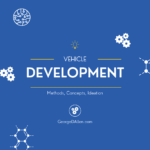New Honda Recall Reveals Deep Supply Chain and QA Failures

New Honda Recall Reveals Deep Supply Chain and QA Failures
Introduction: Executive Summary
During the 2025 Honda Recall more than 250,000 vehicles—due to a defect in the brake pedal pivot pin. While the issue appears mechanically isolated, it reveals deeper systemic failures in component validation, traceability, and supplier oversight. Furthermore, as global OEMs increasingly adopt lean, modular platforms and accelerate launch cycles, maintaining robust supply chain quality becomes more challenging—yet remains essential.
Therefore, this article explores how fragmented supply chains and weak systemic controls may have allowed the defect to go undetected. Moreover, it outlines the critical lessons OEMs and suppliers must apply to reduce future risk and improve end-to-end quality governance.
Supply Chain Risks Honda Recall
While supplier-level shortcomings likely played a role, broader systemic failures appear to have contributed as well:
First, design validation processes may have been insufficient. The pivot pin might not have undergone full testing under combined load, thermal, and vibration conditions that simulate aggressive real-world usage. Such gaps in DV/PV test coverage could plausibly account for the observed failure mode.
Second, audit practices may have lacked the necessary depth or frequency. Routine supplier audits might have overlooked outdated work instructions, worn tooling, or operator skill fade—all of which can compromise the integrity of critical forming or assembly steps.
Finally, global sourcing adds layers of complexity. When multi-country supplier networks feed identical components into final assembly, inconsistencies in compliance, material specification translation, and engineering change control can emerge. These variables make it harder to ensure uniform quality across geographies.
Industry Lessons
Generally, this incident should serve as more than a one-off recall—it’s a systemic warning. Hence, to prevent recurrence, OEMs and Tier 1 suppliers must adopt a more proactive and integrated approach to quality assurance and supplier oversight. Therefore, key corrective strategies include:
✅ Expand Durability Testing: Increase component-level validation, particularly for mechanical interfaces tied to vehicle safety. Simulate aggressive use and environmental extremes to catch latent defects early.
✅ Implement Robust Digital Traceability: Ensure lot-level tracking through integrated barcode or RFID systems, enabling faster containment and root cause analysis when issues arise.
✅ Enforce Tighter Audit Protocols: Mandate deeper and more frequent process audits, with required re-certification intervals for high-risk parts or processes.
✅ Strengthen Change Control Discipline: Require comprehensive oversight during supplier transitions—such as tool transfers, material substitutions, or production relocations—to prevent quality drift.
✅ Broaden FMEA Scope: Include real-world abuse scenarios and long-term wear-out modes in cross-functional failure mode assessments to capture risks beyond standard design assumptions.
Conclusion: Honda Recall
In conclusion, Honda’s brake pedal recall highlights a deeper vulnerability in today’s fast-paced, globally distributed vehicle programs: a single component failure can escalate into widespread financial and reputational damage. Additionally, what initially appears to be a localized supplier defect often reveals systemic weaknesses—in audit rigor, validation completeness, or traceability infrastructure.
Therefore, to build long-term resilience, OEMs must move beyond cost and delivery metrics. In addition, enforcing robust safety validation, investing in integrated QA systems, and tightening supplier controls are no longer optional—they are foundational to maintaining product integrity in a compressed development cycle.
References
- Auto Warranty Statistics 2025 | ConsumerAffairs®: Provides insights into the market size of the extended auto warranty industry, noting a decline between 2018 and 2023. consumeraffairs.com+1mordorintelligence.com+1
- U.S. Auto Warranty Annual Reports: Highlights the warranty reserves held by major automakers like Tesla and GM as of December 31, 2024, indicating significant increases from the previous year. warrantyweek.com
- NHTSA database: https://www.nhtsa.gov/search-safety-issues
- USA Today’s Recall Database: https://www.usatoday.com/recalls/
Automotive Recalls articles:
Warranty Impact Series References
- https://georgedallen.com/new-growing-warranty-crisis-in-the-auto-industry/
- https://georgedallen.com/new-growing-warranty-crisis-causes-of-the-warranty-spike/
- https://georgedallen.com/new-growing-warranty-costs-ford-tesla-gm-under-pressure/
- https://georgedallen.com/new-growing-warranty-impact-on-dealerships-and-service/
- https://georgedallen.com/new-warranty-impact-surge-what-consumers-must-know/
- https://georgedallen.com/new-growing-warranty-crisis-the-road-ahead-for-expenses/
About George D. Allen Consulting:
George D. Allen Consulting is a pioneering force in driving engineering excellence and innovation within the automotive industry. Led by George D. Allen, a seasoned engineering specialist with an illustrious background in occupant safety and systems development, the company is committed to revolutionizing engineering practices for businesses on the cusp of automotive technology. With a proven track record, tailored solutions, and an unwavering commitment to staying ahead of industry trends, George D. Allen Consulting partners with organizations to create a safer, smarter, and more innovative future. For more information, visit www.GeorgeDAllen.com.
Contact:
Website: www.GeorgeDAllen.com
Email: inquiry@GeorgeDAllen.com
Phone: 248-509-4188
Unlock your engineering potential today. Connect with us for a consultation.


